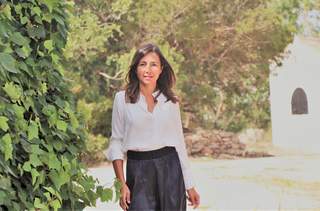
Portuguese EU Council Presidency: “There can be no business as usual”
How do you assess the economic situation in your country?
Portuguese companies have shown an incredible resilience and capacity to safeguard jobs in face of the pandemic. But this was a tough year and most companies have used existing reserves and are struggling to stay afloat. Unfortunately, we do not see the necessary level of support for companies in Portugal, way below most European counterparts. If we are to maintain employment and meet the great ambitions of the green and digital transitions, we need companies not only to survive but to have the capacity to invest and innovate. The European recovery plan and funds of the current programming period offer a great opportunity. But it will not be enough to do more of the same.
What can business expect from the Portuguese Council Presidency?
Taking over the Presidency of the Council of the EU in the current context is a great responsibility. Three months into the Presidency, Portugal has managed to advance in difficult dossiers, such as in the digital area, and has closed several files which will allow programmes in the multiannual financial framework 2021-2027 to actually start. However, amongst so many ongoing fundamental files, it is important that the Portuguese Presidency devotes its resources to those which can bring a positive impact to the functioning of the EU. Actions in the field of social Europe must be developed in full respect for European social dialogue.
What are your organisation’s three top priorities regarding the EU agenda?
- Proper roll out and implementation of a coherent recovery strategy: this involves the national recovery and resilience plan as well as a modern strategy for the use of EU structural funds. These two strategies must be fully aligned, designed in a strategic and simple way to optimise an unprecedented level of available resources.
- Place the economic agenda at the centre of EU policy: We need a strong economy, based on resilient and innovative companies, for Europe to be able to lead on its great ambitions of a double green and digital transition, based on a solid European social model.
- An ambitious international agenda which rejects protectionism: The EU trade agenda must move forward, rejecting protectionisms and pressing forward with important trade deals.
What is your organisation’s main expectation of the German government in terms of EU politics?
German politics will suffer a deep transformation with the end of Chancellor Merkel era. However, European partners expect Germany to remain driving force moving the EU project forward, in a post crisis context with so many disruptive changes. Given the intensive participation of its companies in Global Value Chains, Germany should continue to decisively contribute both to EU economic cohesion and to the progress of the new EU open, sustainable and assertive trade policy, where present EU bilateral relations with US, China, Africa and Mercosur are particularly challenging.
What is your personal vision for the future of the EU?
The functioning of the European Union is not without its problems, and the flaws inherent to this project have become repeatedly evident in recent years. But in a process of trial and error, we keep on improving the EU and, as the different crisis have shown, we stand better together than working in isolation. The European Union is the boldest and greatest political project of all times. It is a peace project, and stands for fundamental values which must be upheld and defended.



